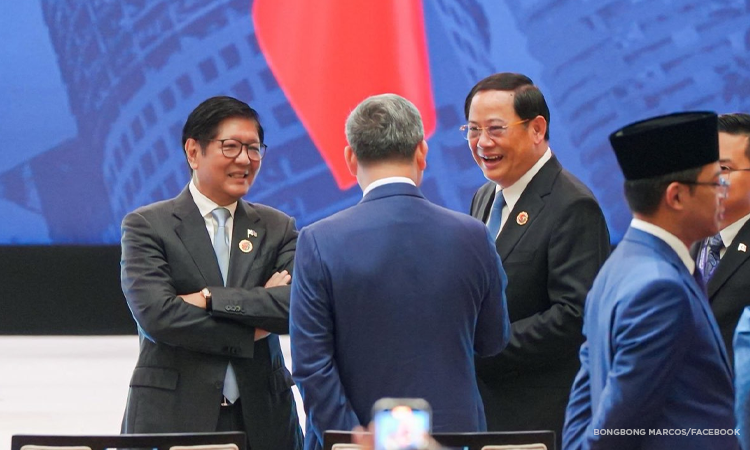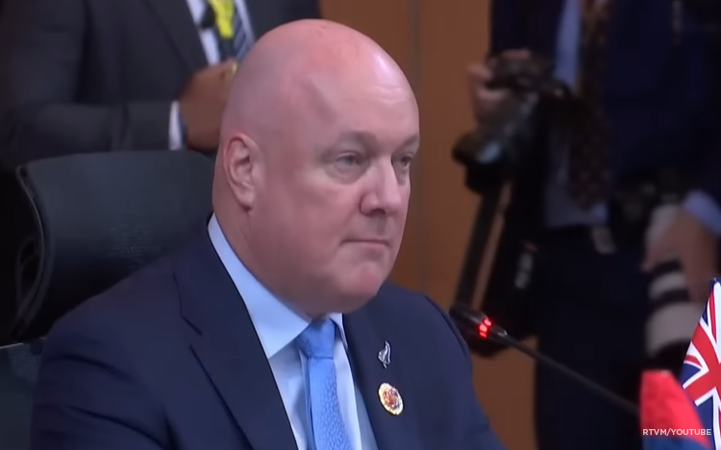ASEAN, China strengthen trade partnership with new pact amid US tensions
Kuala Lumpur, Malaysia - China and the Association of Southeast Asian Nations (ASEAN) on Tuesday formally signed the ASEAN-China Free Trade Area (ACFTA) 3.0, an upgraded pact aimed at strengthening supply chains and expanding cooperation in the digital and green economies amid rising global trade tensions.
The deal, signed by China’s Commerce Minister Wang Wentao and Malaysia’s Investment, Trade and Industry Minister Tengku Zafrul Abdul Aziz, and witnessed by Chinese Premier Li Qiang and Malaysian Prime Minister Anwar Ibrahim, marks the second upgrade since the agreement was first established in 2002.
Malaysia, the current ASEAN chair, hosted the signing ceremony during the ASEAN–China Summit in Kuala Lumpur. In his remarks, Anwar said the upgraded trade pact marked “an important step in economic cooperation between the two sides.”
“I thank my colleagues again in ASEAN and China for this spectacular feat in terms of the FTA as the first ASEAN–China FTA,” he said.
Chinese state media quoted Premier Li Qiang as saying the deal “heralds a new opportunity to expand and enhance bilateral economic and trade cooperation.”
Expanded cooperation
The enhanced ACFTA 3.0 covers key areas such as digital economy, green economy, agriculture, pharmaceuticals, and supply chain connectivity. It also introduces new commitments to ensure fair competition and better protection for online and overseas consumers.
Singapore’s Ministry of Trade and Industry said the agreement would “help businesses operating in Southeast Asia and China capture new opportunities such as in artificial intelligence and fintech.”
China has been ASEAN’s largest trading partner for 16 consecutive years, with trade between both sides reaching 5.57 trillion yuan (US$783.3 billion) in the first three quarters of 2025, up 9.6 percent from a year earlier.
ASEAN, now composed of 11 member states including newly inducted Timor-Leste, is the world’s fifth-largest economy with a combined GDP of US$3.9 trillion.
Geopolitical backdrop
The signing took place as Beijing seeks to reinforce its image as a champion of free trade, even as it faces criticism over export restrictions on rare earths and critical minerals.
The deal also comes amid escalating trade tensions between China and the United States, with US President Donald Trump threatening new 100 percent tariffs on Chinese goods beginning Nov. 1 in retaliation for Beijing’s export curbs.
Speaking after the signing, Anwar underscored ASEAN’s balanced diplomacy.
“The day before, we were with President Donald Trump, and today we are back with China,” he said. “That reflects ASEAN’s centrality and steady engagement that fosters trust and enables us to work through challenges together.”
During the summit, Chinese Premier Li Qiang urged ASEAN to stand united amid what he described as growing “external interference,” including power politics and economic coercion.
“We will gain nothing from disunity and confrontation,” Li said during the ASEAN–China Summit in Kuala Lumpur.
The ACFTA 3.0 agreement is expected to take effect once ratified by all ASEAN member states and China.





